My friend Sydney’s husband—a man far too young to be bound to his bed—recently tripped and fell while walking through their cluttered home.
It was the kind of accident that could happen to any of us. A simple fall. But somehow it damaged his spinal cord… limiting his mobility for the rest of his life.
Mark was always a collector—a flea-market, garage-sale enthusiast. He lived for a good find (and generally didn’t mind filling their house up with them!).
Sydney, on the other hand, always struggled with it. She felt weighed down by the volume of things they owned.
A Turning Point This Couple Never Saw Coming
But now that Mark can’t leave their home, he isn’t bringing anything new in. And with the help of their kids, Sydney has dramatically decreased what they own, carving out space to breathe—and room to maneuver a wheelchair when Mark’s body is finally ready for that step.
“I love how our home feels now—and how much less stressed I feel when I’m in it.” Sydney told me. “It’s what I’ve wanted for years. I’m only sorry this had to be our reason for a change.”
Why Mess Causes Stress
Maybe you’re like Sydney, and you know how it feels to live in both kinds of environments—over-full and messy vs. streamlined and tidy.
Maybe you’ve experienced firsthand the stress, exhaustion, and overwhelm that come with living in a crowded environment.
And maybe at some point in your life—whether it was in adulthood or childhood, your college dorm or even a week-long stay in a hotel room—you’ve also experienced the freedom, relaxation, and clear mind that comes with living with less.
The difference is distinct. It’s as clear as night and day. (Or… as clear as all the times when your kid comes to you with orange-powdered lips and swears he did NOT get into the Cheetos in the pantry!)
Women, in particular, struggle to carry the emotional weight of our family’s belongings.
UCLA researchers conducted a 9-year study of how 32 families interacted their belongings, and they found a correlation between high cortisol levels (aka stress) in women and a high density of household objects.
Elevated cortisol levels keep us from enjoying psychological wellbeing. (And isn’t the sense of wellbeing really what we all want?) Plus, we’re not made to sustain high levels of cortisol for long periods of time, so when we do, that cortisol taxes the body, leading to very real symptoms like anxiety, depression, weight gain, fatigue, headaches, insomnia, and more.
All of this said, I don’t think any of us need a 9-year, scientific study to tell us how clutter and messes make us feel. We experience the effects when we’re living with it. (As clear as a kid with an orange-powdered face!)
But What If You’re Just NOT a Tidy Person?
The other day, a woman named Stacy sent me what she called a cry for help. She said she is and always has been a super MESSY person. When she was a kid, her mom harped on her constantly to clean up her room. But try as she might—both then, as a child, and now, as an adult—she’s never been able to maintain a clean home for more than a few days at at a time.
Her question for me was this—
“Do you think it’s possible for me to change? I really am sick of living this way, and it drives my husband crazy. But history tells me this is just the way I’m wired.”
I believe it’s possible to become a tidy person. I also believe it’s perfectly okay to never become a tidy person. (There’s room for all kinds of people around here!) But if you want to live with less stress, to finally be able to take a deep breath in your own home, then these keys will help you move to a tidier, freer life. ❤️
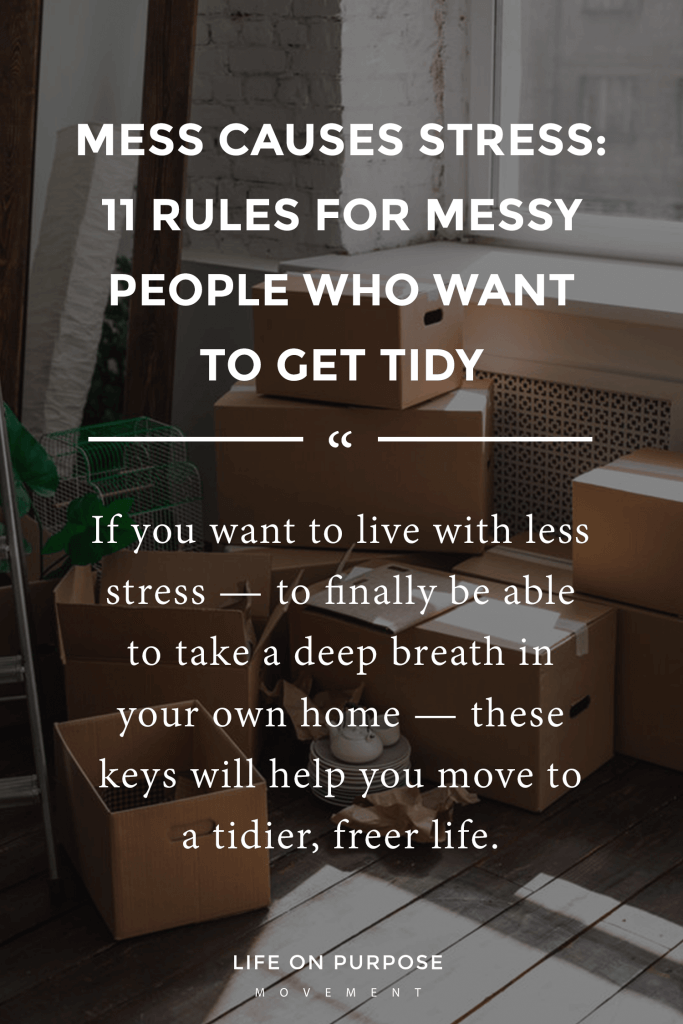
11 Rules for Messy People Who Want to Get Tidy
1. You need to own SO much less than you currently do.
It all starts here. If you have a dresser that’s stuffed so full that your clothes get pushed to the back corners of the drawers and become lost to you forever, then you have too much stuff. If you have so many dishes that your dishes pile sky-high next to the sink (…or scattered around your house), you have too much stuff.
If you’re a messy person living with too much stuff, it’s going to be a million times harder to live tidy.
This is the first question that came to mind when Stacy reached out asking me if I thought it was possible for her to change. I immediately thought, “Well, how much stuff do you have?” The first and most essential step is significantly reducing what you own.
2. Don’t overwhelm yourself by taking on more than you can handle at one time. Instead, start small.
Willpower is a finite resource, and you’re not likely going to change the way you’ve always been overnight. So start by decluttering and tidying one small (non-sentimental) space at a time—from your junk drawer to your spice cabinet—and practice keeping it tidy before moving on to another small space. Build up your confidence by not overwhelming yourself with all of the change you have to keep up. Baby steps, friend!
3. Don’t even think about organizing. Focus on de-owning.
You could spend a lifetime going to and from Target or The Container Store, buying and returning baskets and bins—always on the quest for the perfect system that will keep you organized. But as long as you have too much stuff, you’ll never get there. Don’t organize—de-own.
4. Consider ditching your backups.
I keep one set of towels for each bathroom, one set of sheets for each bed, one small set of drinking glasses for our family of five… The list goes on.
Sure, not having backups can sometimes be a bit inconvenient. Like when my husband gets out of the shower only to realize I’m washing his towel. (Oops!) But overall, that occasional inconvenience is worth it to me, because not owning backups means that—by necessity—we have to stay on top of the small household chores that keep our home running.
Because of this, I almost never have piles of backed-up dishes or laundry. Loads are small and happen efficiently because that’s our only option. 😉 It may not work for everyone, but it absolutely works for me! If you’re messy by nature, give it a shot and see what happens.
5. Give the most attention to high-impact areas.
Take some time to figure out which of your messy areas negatively impact you the most. Maybe it’s the piles of mail stacked randomly around your house—piles that give you anxiety every time you look at them. Maybe it’s your entryway, because having no system for your coat and keys means you’re always scrambling to find them at the last minute.
You may not become a neat-freak after one clean-out, but over time, if you prioritize the high-impact areas, you might just be converted to your newfound order and efficiency.
6. Give everything a home.
One of the main things that trip any of us up is holding an item and not knowing where to put it. Baby step by baby step, give every item in your house a home.
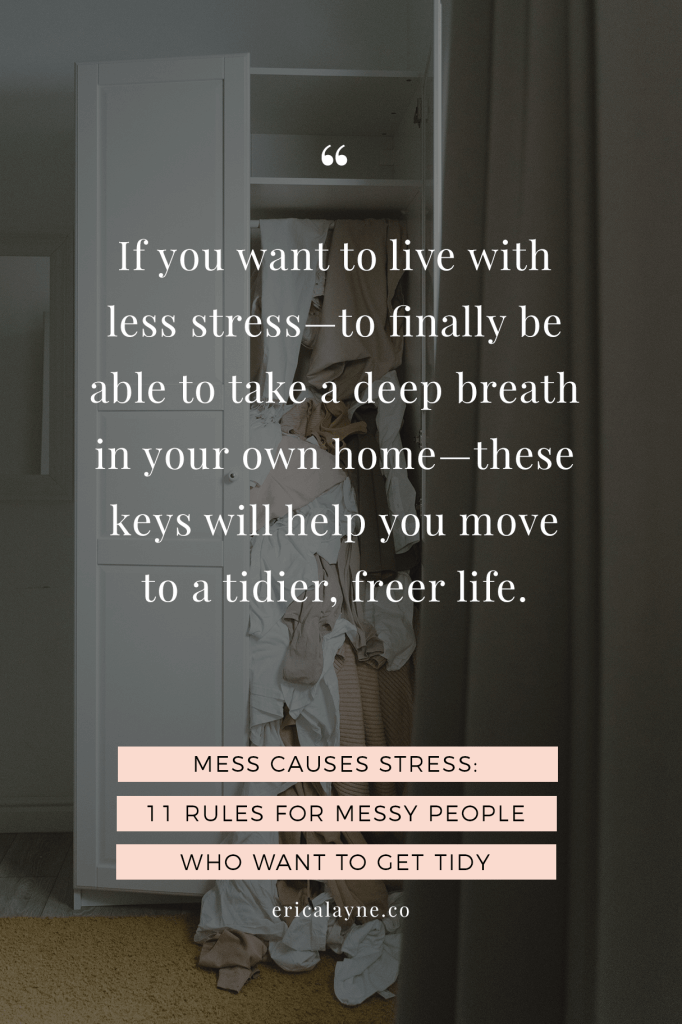
7. Store “like items” together.
Inevitably, you’re going to bring things into your home that don’t immediately have a place. But if you’ve got “like items” corralled, you’ll have a better idea of where to put something new.
This is also especially handy when you suddenly need children’s Tylenol at 2am. ? #parentsunite
8. Shop less. Waaaay less.
Speaking of bringing new items into your home, do less of that! (So easy, right?!) You’ll never really get ahead—you’ll never really make strides to a tidier life—if you keep shopping the way you always have.
It might help to do some digging about why you buy the things you do. For most of us, shopping (even shopping for totally practical things) is a means of seeking out short-term pleasure that helps us temporarily escape negative emotions. Watch for your triggers. Knowing what drives you to shop is an important step to living with less.
9. Label your systems, if needed.
If you know you’re the kind of person who will forget about the systems and order you’ve created, like yesterday, then go ahead and do some labeling. Heck, buy that label gun you’ve always thought symbolized ULTIMATE tidiness.
Caveat: There’s a reason labeling is toward the bottom of this list. Don’t spend hours and hours of your life organizing and labeling things you could pretty easily live without. Remember to declutter and de-own first.
10. Lean in to the satisfaction of a tidy space.
Secret truth: I think this is the super powerful, under-emphasized trick to making ANY positive change in your life.
It’s like they say, “Energy flows where attention goes.” If you consciously lean in to the satisfaction of every space you tidy, that joy and sense of pride will propel you forward.
11. Ultimately, know that you don’t have to be anyone you’re not.
You don’t have to be tidier, thinner, funnier, or smarter… You don’t have to be more assertive, more ambitious, or more productive… You don’t have to be more of anything in order to be enough. You already are.
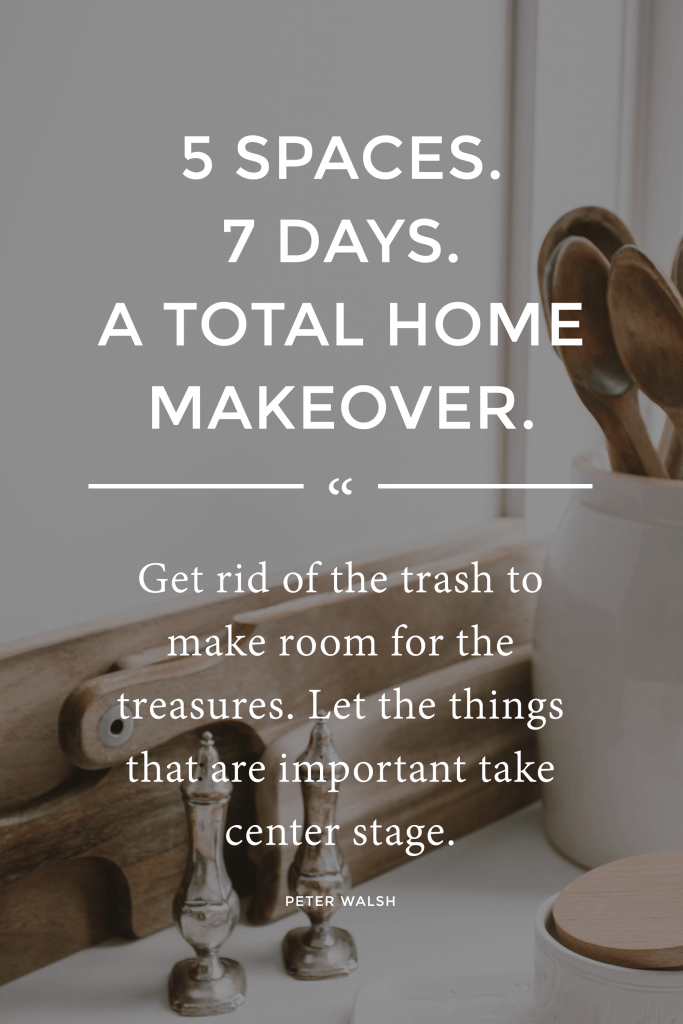
Ready to clear your clutter and start fresh?
Jump into my 7-day challenge where we’ll tackle one area of your house per day!
Declutter, De-stress: A 7-Day Challenge to a Lighter, Calmer Home
What You’ll Get
- 7 lessons delivered to your inbox in 7 days (no new passwords or platform to learn)
- A beautiful, printable workbook
- A calmer, more peaceful home—in just 7 days!
What We’ll Cover
- Day 1: Systems that WORK
- Day 2: Kitchen and pantry
- Day 3: Garage or storage areas
- Day 4: Master closet
- Day 5: Kids’ clothes and toys
- Day 6: Paper clutter
- Day 7: Celebrate!
Imagine how much you can get done in just seven days with a specific plan and support! Learn more and jump in right here! ↠↠ Declutter, De-stress: A 7-Day Challenge to a Lighter, Calmer Home
With you on the journey!



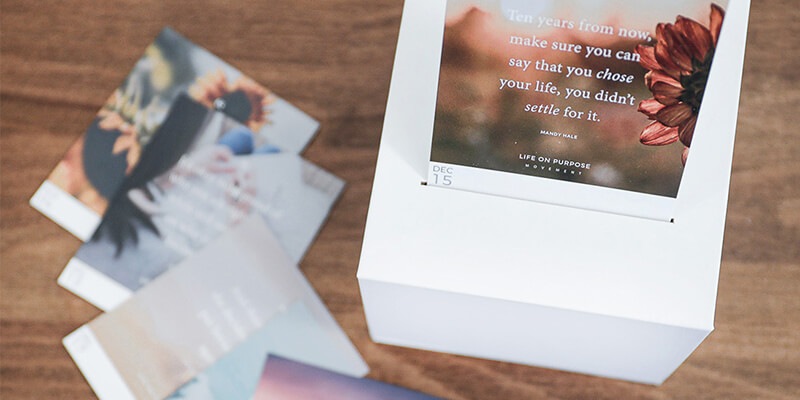
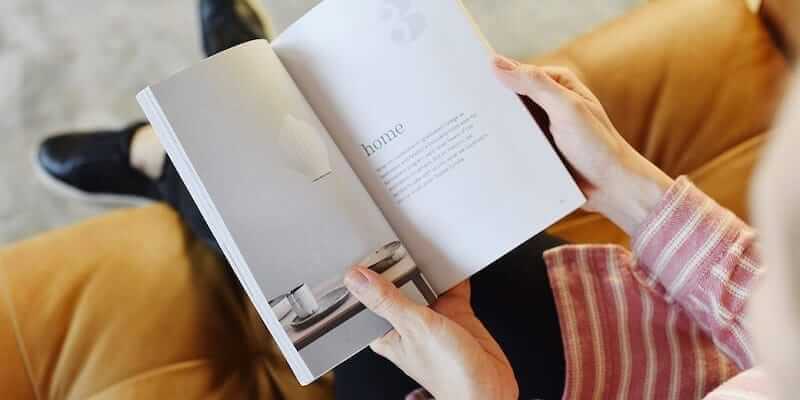
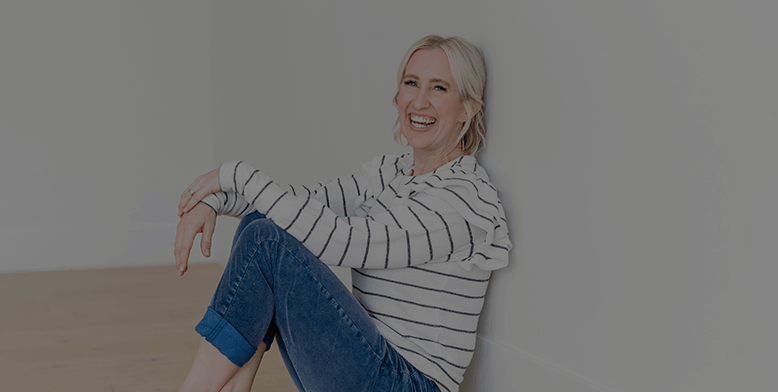
I think #5 is the one for me to pay attention to. The mess (almost all created by my family, not me) just overwhelms me most days and I don’t know where to start. The piles of paperwork and the mess in the hallway should probably be my priorities.
Thank you for sharing your tips. A lot of them are just part of my life. If only they could be part of my children’s!
Aaaamen, Jennifer! I’m with ya!
Thanks for the article, i’ve got some useful tips.
I absolutely LOVE point three – don’t even think about organising but de-owning instead!
This was great! I like the suggestion to de-own. Something about that word feels less harsh. The other day I let go of my favorite children’s books because honestly I haven’t looked at them in years. I gave them to a little girl who is thrilled to have them. I de-owned to bring joy to someone else. It was great.
And yeah…my mom always comments on how tidy I am and I just think: when you don’t have too much stuff it is easy to keep it tidy.